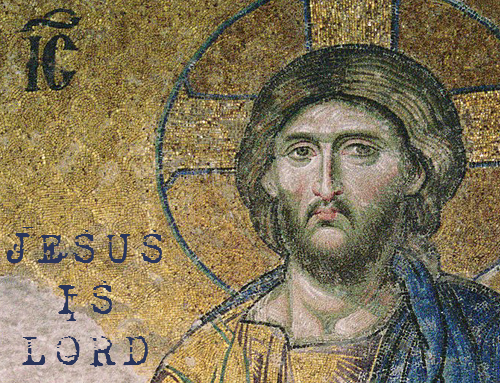
The idea that America is the last, best hope of the world is the spirit that animates a great deal of political activity in our country. The “last, best hope” is one of the most enduring rallying cries preached to garner support and enthusiasm for major government initiatives throughout American history. It has become such a widely accepted notion that its veracity and relevance for lawmaking and executive action is simply assumed, even among Christians.
In his first inaugural address in 1801, Thomas Jefferson reasoned, “I know, indeed, that some honest men fear that a republican government cannot be strong, that this Government is not strong enough; but would the honest patriot, in the full tide of successful experiment, abandon a government which has so far kept us free and firm on the theoretic and visionary fear that this Government, the world’s best hope, may by possibility want [lack] energy to preserve itself? I trust not.” Jefferson lifted America’s republican form of government up as the world’s best hope.
Abraham Lincoln returned to the theme six decades later while the world’s best hope, as embodied by the Union, was in danger of dissolving. Speaking in his Second Annual Message to Congress in 1862, Lincoln movingly declared, “Fellow-citizens, we cannot escape history. We of this Congress and this Administration will be remembered in spite of ourselves. No personal significance or insignificance can spare one or another of us. The fiery trial through which we pass will light us down in honor or dishonor to the latest generation. We say we are for the Union. The world will not forget that we say this. We know how to save the Union. The world knows we do know how to save it. We, even we here, hold the power and bear the responsibility. In giving freedom to the slave we assure freedom to the free — honorable alike in what we give and what we preserve. We shall nobly save or meanly lose the last best hope of earth.” For Lincoln, an intact Union personified the cause of freedom in the world. The freedom provided by a united America was the last best hope of the earth.
Ronald Reagan famously revived the theme in 1964 in an effort to strengthen Barry Goldwater’s presidential candidacy during his nationally-televised “A Time for Choosing” speech: “You and I have a rendezvous with destiny. We will preserve for our children this, the last best hope of man on earth, or we will sentence them to take the first step into a thousand years of darkness. If we fail, at least let our children and our children’s children say of us we justified our brief moment here. We did all that could be done.” Reagan persuasively championed “the maximum of individual freedom consistent with order.” He exposed governmental force, coercion, and control of the people and warned against a path that would lead to “the ant heap of totalitarianism.” For Reagan, the destiny of the nation and therefore the entire world rested upon the outcome of this presidential election.
On the campaign trail in 2008, Barack Obama carried the theme to new heights preaching, “The journey will be difficult. The road will be long. I face this challenge with profound humility, and knowledge of my own limitations. But I also face it with limitless faith in the capacity of the American people. Because if we are willing to work for it, and fight for it, and believe in it, then I am absolutely certain that generations from now, we will be able to look back and tell our children that this was the moment when we began to provide care for the sick and good jobs to the jobless; this was the moment when the rise of the oceans began to slow and our planet began to heal; this was the moment when we ended a war and secured our nation and restored our image as the last, best hope on earth.”
A bipartisan foursome worthy of their own Mount Rushmore – the author of the Declaration of Independence, the Great Emancipator, the Great Communicator, and the personification of Hope and Change – all upheld the United States of America, its form of government, its influence for freedom, and even its ability to heal the very planet itself as the last, best hope of humankind.
While Barack Obama represents a leftist vision of America as the last best hope, conservatives have their versions of the theme as well. Conservative thinker Bill Bennett responded to what he perceived to be a decline in young Americans’ understanding of what makes America so great, despite its imperfections, with his three-volume set: America – The Last Best Hope. Fellow conservative sage, Dennis Prager, recently offered his contribution, Still the Best Hope, in which he contrasts the competing visions of “Leftism,” “Islamism,” and, what he calls, “Americanism”: a “trinity” of core values – “Liberty,” “In God We Trust,” and “E Pluribus Unum”. While there may be competing ideas as to which values best represent the American ideal, it is widely held across the political spectrum that America is the last, best hope on earth.
The question for American evangelicals is: Is America truly the last, best hope of the world? Let me begin to respond to this question by first asking, are there any alternatives that ought to come to mind when Christians begin to consider this question? Is there anything else Christ-followers might believe is the hope of the world? Do we as “little Christs” have a competing theory? Any “good news” on the topic? What’s that? The gospel of Jesus Christ, you say? Yes, I think that may be it!
“C’mon, that goes without saying!,” you might reply. Does it? Early Christians promulgated the New Testament creed that is commonplace and almost boring today: “Jesus is Lord!” Yes, we say, Jesus is Lord of my life. He’s the Lord of my heart. This may be what “Jesus is Lord” means to many Christians today but in the 1st century it was a competing pledge of allegiance that directly contradicted the loyalty oath of the Roman empire: “Caesar is lord.” Jesus came to establish his own kingdom, the kingdom of God. When a Christian declared “Jesus is Lord,” the obvious and deliberate implication was, “Caesar is not.”
Just as a Christian in the first century would never make the claim that Caesar or the Roman Empire is the last, best hope of the earth, Christians today make a mistake by elevating any kingdom of this world to the status of “the hope of mankind.” When we slip into the mindset that America is the best hope of the world along with the assumption that we must do something to preserve this status, we will eventually find ourselves supporting acts by the government that are contrary to the kingdom that deserves our first and ultimate allegiance, the kingdom of God.
The kingdoms of the world and the kingdom of God offer radically different visions for the world. American evangelicals along with all Christians ought to reject the idea that America is the last, best hope of earth because this is a form of idolatry. It is giving a status that ought to be reserved for God to someone or something else. If America is the best hope of the world then the good news of Jesus Christ and his kingdom is not.
Unless we strongly affirm the earliest of Christian creeds, Jesus is Lord, we will tend to give the agendas of earthly kingdoms undue importance. Unless we me make it clear that our ultimate allegiance is to Jesus Christ and his kingdom, we will tend to look to the State rather than the church for the solutions to life’s challenges. If America is the hope of the world then the State ought to export this hope to the world and Christians should enlist in that cause. However, if Jesus Christ is the hope of the world then the church ought to be about the business of the kingdom of God.
America as the last, best hope of the world was chosen as a “myth of American evangelicalism” because it is one of the underlying assumptions of both conservative and progressive evangelicals. Both camps believe that if they can just gain control of the State then they can use its powers for good. They just differ on what “good” looks like. And when they’re implementing their version of good, they’re “restoring” America’s status as the last, best hope of the world as Barack Obama put it.
 Preserving a grip on the reins of governmental power causes evangelicals to embrace or overlook what was “evil” when their opponents held the reins of power. Progressive evangelicals who howled in righteous indignation over the war in Iraq and American imperialism under President Bush fell silent when their preferred “Peace President” bombed seven different nations. In November of 2011, President Obama boasted to troops returning from Iraq, “That’s part of what makes us special as Americans. Unlike the old empires, we don’t make these sacrifices for territory or for resources. We do it because it’s right.” Same means, just the “right” ends (and notice the language of “empire”). On the other hand, many of the conservative evangelicals who applauded the civil liberties violations of the Patriot Act under President Bush are now decrying the Obama Administration’s use and expansion of these same policies as a “police state.” Contradictions such as these are tolerated because of the larger aim of controlling the do-gooder powers of the last, best hope of the world.
Preserving a grip on the reins of governmental power causes evangelicals to embrace or overlook what was “evil” when their opponents held the reins of power. Progressive evangelicals who howled in righteous indignation over the war in Iraq and American imperialism under President Bush fell silent when their preferred “Peace President” bombed seven different nations. In November of 2011, President Obama boasted to troops returning from Iraq, “That’s part of what makes us special as Americans. Unlike the old empires, we don’t make these sacrifices for territory or for resources. We do it because it’s right.” Same means, just the “right” ends (and notice the language of “empire”). On the other hand, many of the conservative evangelicals who applauded the civil liberties violations of the Patriot Act under President Bush are now decrying the Obama Administration’s use and expansion of these same policies as a “police state.” Contradictions such as these are tolerated because of the larger aim of controlling the do-gooder powers of the last, best hope of the world.
Liberty-minded evangelicals support the furtherance of peace and the preservation of civil liberties during all administrations. We don’t need the State to coerce others into doing good. We have the superior resources of the kingdom of God. The State, American or otherwise, is not the last, best hope of the world, Jesus Christ is. Jesus Christ is Lord and, therefore, all other Caesars are not.
This article first appeared at the Evangelicals for Liberty blog.

Articles posted on LCI represent a broad range of views from authors who identify as both Christian and libertarian. Of course, not everyone will agree with every article, and not every article represents an official position from LCI. Please direct any inquiries regarding the specifics of the article to the author.
Did you read this in a non-English version? We would be grateful for your feedback on our auto-translation software.
), //libertarianchristians.com/wp-content/plugins/smartquizbuilder/includes/images/template6-latest.jpeg))

), https://libertarianchristians.com/wp-content/plugins/smartquizbuilder/includes/images/template6-latest.jpeg))








































), https://libertarianchristians.com/wp-content/plugins/smartquizbuilder/includes/images/template6-latest.jpeg))
), https://libertarianchristians.com/wp-content/plugins/smartquizbuilder/includes/images/template6-latest.jpeg))
), https://libertarianchristians.com/wp-content/plugins/smartquizbuilder/includes/images/template6-latest.jpeg))





*by signing up, you also agree to get weekly updates to our newsletter
Sign up and receive updates any day we publish a new article or podcast episode!